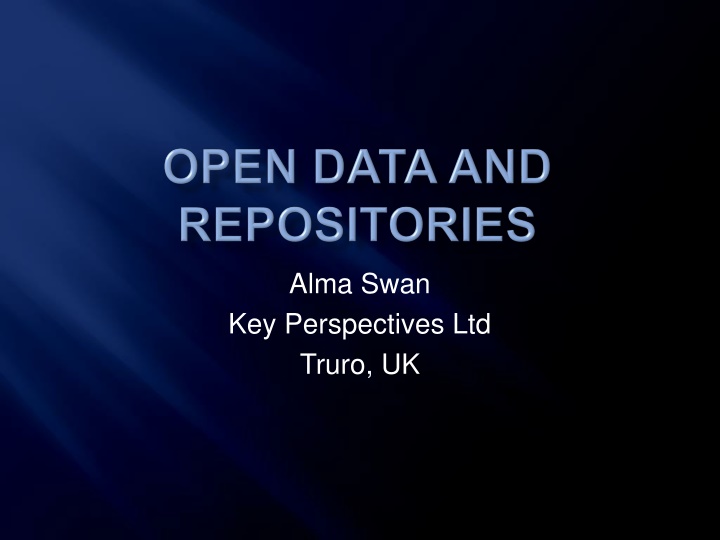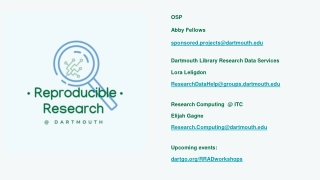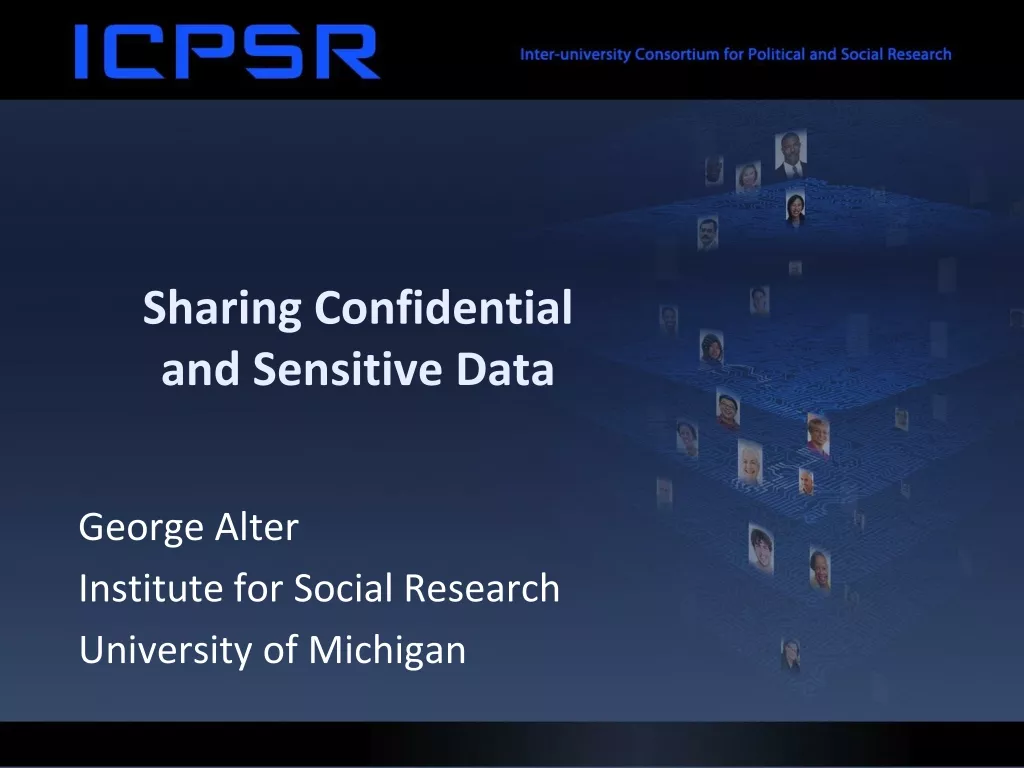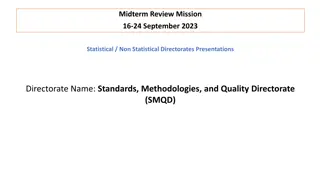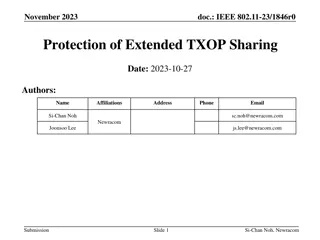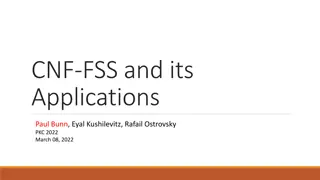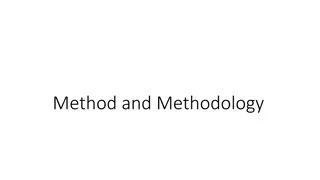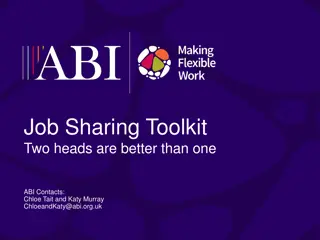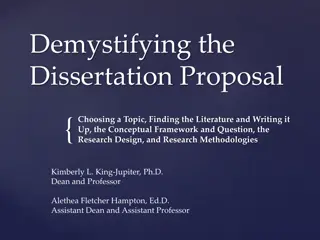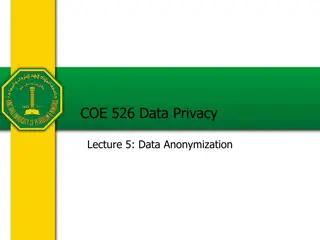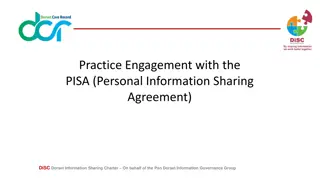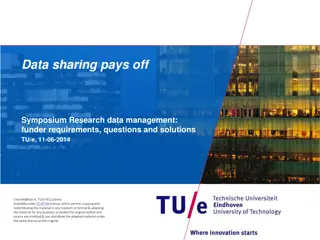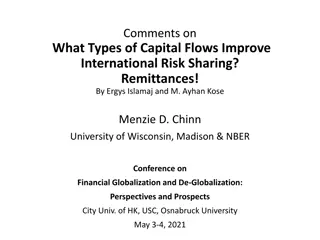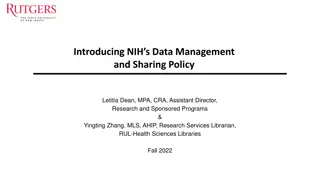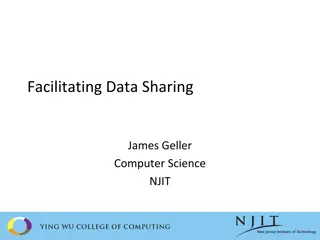Research Data Sharing and Future Methodologies
Researchers' attitudes towards data sharing, the significance of open access to digital data, and the emerging trend of open data in various disciplines. Explore the challenges and opportunities for preserving, archiving, and reusing research data in the digital age."
Download Presentation

Please find below an Image/Link to download the presentation.
The content on the website is provided AS IS for your information and personal use only. It may not be sold, licensed, or shared on other websites without obtaining consent from the author.If you encounter any issues during the download, it is possible that the publisher has removed the file from their server.
You are allowed to download the files provided on this website for personal or commercial use, subject to the condition that they are used lawfully. All files are the property of their respective owners.
The content on the website is provided AS IS for your information and personal use only. It may not be sold, licensed, or shared on other websites without obtaining consent from the author.
E N D
Presentation Transcript
Alma Swan Key Perspectives Ltd Truro, UK
Researchers attitudes to data sharing Data scientist skills Both self-archived at: http://eprints.ecs.soton.ac.uk (search Swan data ) Key Perspectives Ltd
Same moral arguments as for Open Access to research literature But digital data can be mined and re-used to create new knowledge by computer technologies Major research methodology for the future Key Perspectives Ltd
Governments: Public access to government data (e.g. geospatial data) Funders: mandatory requirements for Open Data Publishers: increasing numbers requiring original datasets to accompany an article: Nature Specific disciplines (e.g. genomics, chemical crystallography) Key Perspectives Ltd
Yes and no The idea is long-accepted in the digital data- heavy disciplines (e.g. astronomy, genomics) Others following along Still some reservations But Open Data is the way of the future Key Perspectives Ltd
Researchers are (mostly) bad at this Some international databanks (e.g. GenBank) Some countries have systems in place to save (important) datasets Example: UK, with national data centres run by the research councils But the long tail of small data are vulnerable Action is needed before too much information is lost: For preservation For archiving For discovery and re-use Key Perspectives Ltd
The natural home for small datasets Form part of the research output of a university Another base on which to develop research assessment metrics Some repositories already report storing datasets (where researchers have chosen to deposit them) Key Perspectives Ltd
Repository managers recognise the challenge ahead: storage space file formats long-term preservation We identified a new professional role: Data librarian Key Perspectives Ltd
Only a small number so far Library schools not yet geared up for this training Demand is low (because no established career path or grade) Lack of internships in US and work placements in UK Good subject-based first degree is required Key Perspectives Ltd
Training researchers to be more data- aware Adopting a data care role via repositories Anticipate increased level of data-related interactional learning and activity between library and research communities Data librarian training Key Perspectives Ltd
